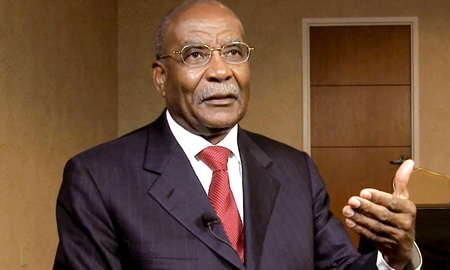According to Minister of Petroleum José María Botelho de Vasconcelos, whereas the sector’s share of GDP in 2008 was over 50%, today it stands at about 45%.
“It is still quite a lot, but the state is working to diversify our economy,” he adds.
Focusing on boosting other economic sectors is not detracting the oil giant from its biggest breadwinner; on the contrary, industry professionals predict that by 2015, Angola will be producing 2 million bdp and perhaps even topple Nigeria from first place.
The petroleum minister outlines the state’s plans to boost the sector further.
“We have to intensify research and exploration activities, invest in improvements to increase our production,” he says.
“Also, we are lacking in turning crude oil into final products; however, we have a project to install two new refineries here. We are also waiting for gas production to take off, so we can use that to our advantage, not only for the associated natural gas but also to find the non-associated gas.”
Mr Vasconcelos adds that Angola seeks to deepen cooperation with Germany, “as a leader in engineering and equipment manufacturing. We want to continue the work with German executives to identify opportunities within the industry.”
Angola is addressing the human capital side of the hydrocarbons sector as well.
“We are training professionals
for the market”
Domingos Francisco
CEO of INP |
“We want Angolans to become technicians; we want to integrate them in the oil companies and we want them to provide services to the industry,” says Mr Vasconcelos.
This process, dubbed Angolisation, is spearheaded by the
National Petroleum Institute (
INP), which has been providing vocational and professional training and higher education since 1993.
According to Domingos Francisco, CEO of INP, apart from its courses in petroleum geology, mining, drilling and production, mechanics, gas processing, instrumentation and refining, INP’s professional training consists of tailored study programmes intended to meet companies’ specific demands and improve the skills of existing company professionals.
“We are training professionals for the market,” explains Mr Francisco. “When companies feel that the school is not meeting their expectations they discuss it with us. They indicate what areas must be improved, thus we formulate new programmes and curriculums. We also work with international institutes, like the Algerian, French and Norwegian oil institutes.”
INP’s CEO also views Germany as a potentially exceptional partner in improving INP’s training capabilities.
“Germany dominates the production of training equipment, renewable energy and electric prototypes,” he says. “It is a country that has a vast range of training equipment. We must identify German partners that dominate this type of equipment as well as the qualification of professionals that handle it. We cannot buy the latest generation equipment if we do not have people able to use it.”
INP is working to expand its programme offering to keep up with the high demand of qualified professionals. And, while the oil industry is thirsty for technicians and professionals, Angolans are thirsty for qualified jobs.
Besides equipping students with the skills and knowledge they need to succeed in the oil industry – not only in Angola, but abroad as well – INP affords a unique opportunity to learn through practice.
As one student at INP describes the training institution: “It is a great experience, because we study the theory at university but here we have an opportunity to learn hands-on. We are definitely more confident to go and work in our areas.”

0 COMMENTS